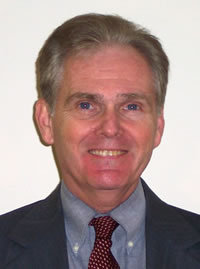A pastoral counselor, licensed marriage and family therapist, and licensed clinical addictions specialist, Dr. David Crenshaw has also directed the Robeson Family Counseling Center since l998. Part of the CareNet network, the center is in Lumberton, in Robeson County, North Carolina. It offers counseling serves to people regardless of their ability to pay.
Dr. Crenshaw is an ordained Southern Baptist Minister who has been practicing as a counselor for over 30 years. He has a diverse background, which includes inpatient and outpatient substance abuse treatment settings and serving as a director of a group treatment home for children. He now specializes in couples counseling as well as children and adolescents and provides treatment for depression and anxiety for most life situation issues. Dr. Crenshaw continues to work with families and individuals who struggle with substance abuse. He was interviewed by Tom Peterson.
What is unique about the Robeson Family Counseling Center?
Our center is in an area of high poverty. With three offices, including the main one in Lumberton, we serve Robeson and surrounding counties. We probably have the highest percentage of Medicaid population in the state. Last year 62 percent of the families we served made less than $30,000 per year. We started reaching to the Native Americans around 2000 through a K.B. Reynolds grant.
And you have been getting some help from the Evangelical Lutheran Church of America, or ELCA?
We’ve had a relationship with the ELCA through St. Marks Lutheran Church in Lumberton. Maxine Amos, a lay person there had been on a national board of the ELCA and let us know of some small domestic hunger grants through their hunger fund. We’ve received some support as far back as 2009.
We’ve been reaching out and served 450 families in the last fiscal year, and of that we’re serving an increasing number of children—221 last year. And we’re more on the prevention area of things.
How does a mental health service get involved in hunger issues?
We help prevent loss of jobs, we’re able to help people get back on their feet and obtain jobs—the main way people earn money and avoid poverty. Depression is the single most debilitating illness we treat. It can disable people; they lose their jobs and are not able to function. Others deal with Post Traumatic Stress. People can become employed if the can work through that. Through suicidal means they are feeling hopeless and they’ll end up losing their life. We work closely with employers employee-assistance programs for those at risk of losing their jobs. People who have lost their jobs and who are unable to pay for these services. The domestic hunger grant helped with this.
The churches are inundated with requests for food. We work with the other United Way agencies in town that deal with hunger.
How did you find yourself on this particular path?
I got into this feeling like it may have been a calling before there were jobs available. In the 1970s I went to Southern Seminary and knew [psychologist and religious educator] Wayne Oates. I knew he was there and that pastoral counseling was an emerging field, community mental health was emerging, and church and community was an emerging theological concept. I was associate pastor and youth director for a while out of school then I became an addiction counselor in South Carolina.
How does this impact physical health?
We are located in two primary care facilities since we’re somewhat integrated that structures lends itself to a holistic approach. Physical health is often related to addictions. If they’re drinking or taking drugs, people don’t know they’re sick. They’re cut off from their bodies. They’re escaping their bodies through drugs. Then it’s painful when they discover they have arthritis or are really sick, don’t feel good. We’re able to help by referring them to physicians. That happens over and over again. This week I’ll see someone who is starting to take care of their physical health, seeing doctors and dealing with so much physical pain through drinking they don’t have the connection to their bodies to deal with it.
How do mental health and poverty relate?
For me it’s faith based. It’s where you go theologically, how you help “the least of these,” those likely to be left out, to not receive services. I came into this from a missions calling and wanting to do things outside the walls of the church. I came in with a passion for that. My talent was mental health. I wondered how to help people who struggled the most.
I finally landed with a faith-based organization in a poverty stricken area. Something like what happened with the domestic hunger grant. That’s what I felt I was called to do.
A local pastor met with a man in a trailer park who was heavily suicidal. After their visit they met with me. And the man came once a week for more than a year. His alcohol and drug problems, his depression and PTSD began when his truck malfunctioned, severely injuring his neck and back. He and his wife had no income. After more than a year of counseling and medical treatment, he went back to truck driving. To show his gratitude he shared his story in the local paper.
For me that’s where it lands, mental health can help prevent poverty.

